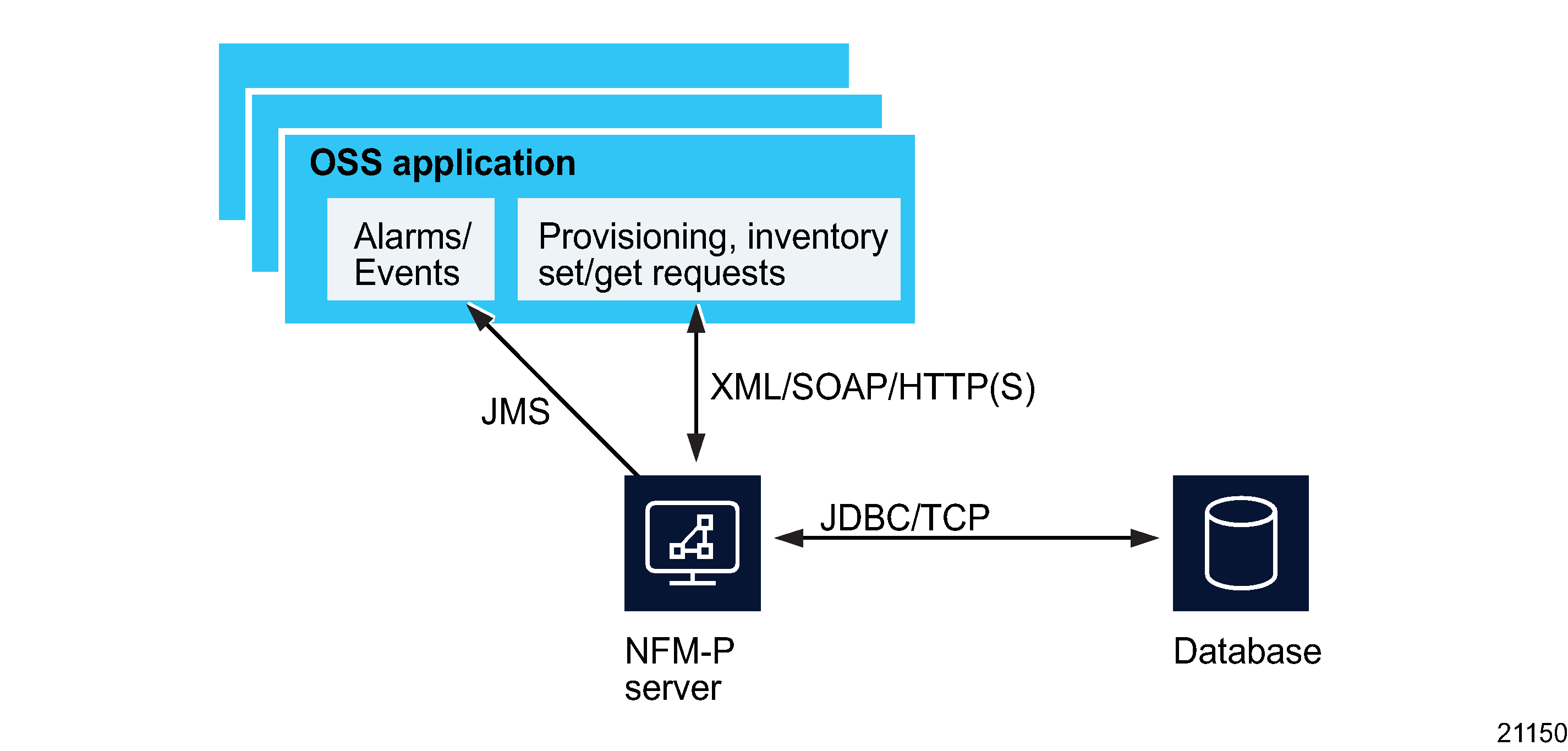OSS client interfaces
Overview
The following figure shows the OSS client interfaces, which provide access to the NFM-P. The OSS clients use the interfaces to send configuration and information requests, and monitor network events.
Figure 3-1: OSS client interfaces

Event monitoring using JMS
Clients can monitor events in the NFM-P and the network by subscribing to event streams. This event-driven function allows a client to maintain a near-real-time view of events in the network. However, the function is unidirectional and does not allow clients to initiate changes in the NFM-P or the network.
To use JMS event streams to monitor events, the OSS developers need to create a JMS client. The client must subscribe to one or more event streams, which can be used to monitor events. Some applications are:
See Chapter 4, Event monitoring using JMS for more information about JMS and event monitoring.
Request and response using the XML API
Clients can request information and initiate changes in the NFM-P and in the managed network using the XML API. This function is bidirectional. Clients send requests and receive responses that contain the information requested or the results of an operation.
The XML API uses HTTP. The OSS developers must create a client that can send HTTP requests and receive responses. Some applications are:
The XML API supports HTTP 1.1. Except for the following RFC 2616 standard HTTP request header fields, the other HTTP header fields are not to be set:
Content-Type: text/xml; charset = ISO-8859-1
User Agent: <Client User Agent>
Host: <NFM-P main server>
Content-Length: <Size of the request body>The XML API does not support non-standard HTTP headers.
See Chapter 5, XML requests for more information about using XML API .
XML and SOAP
The JMS events and HTTP requests and responses are written in XML using the SOAP standard. XML is a standard format used to describe data. The Schema Reference is defined in XML style sheets, which are distributed with the documentation. API requests and responses, and JMS events are wrapped in SOAP envelopes.
For more information, see the related W3C specifications and other related material available from technical publishers and the Internet. Some suggested resources are: